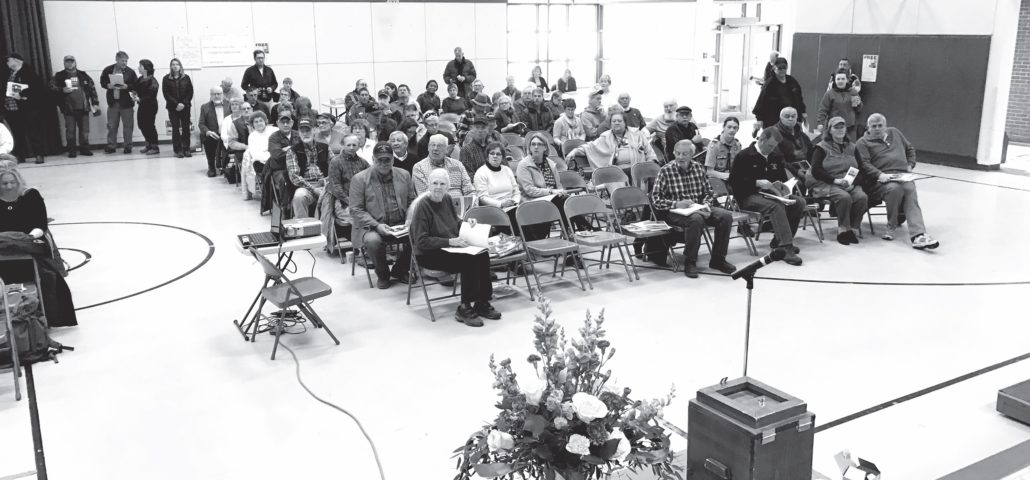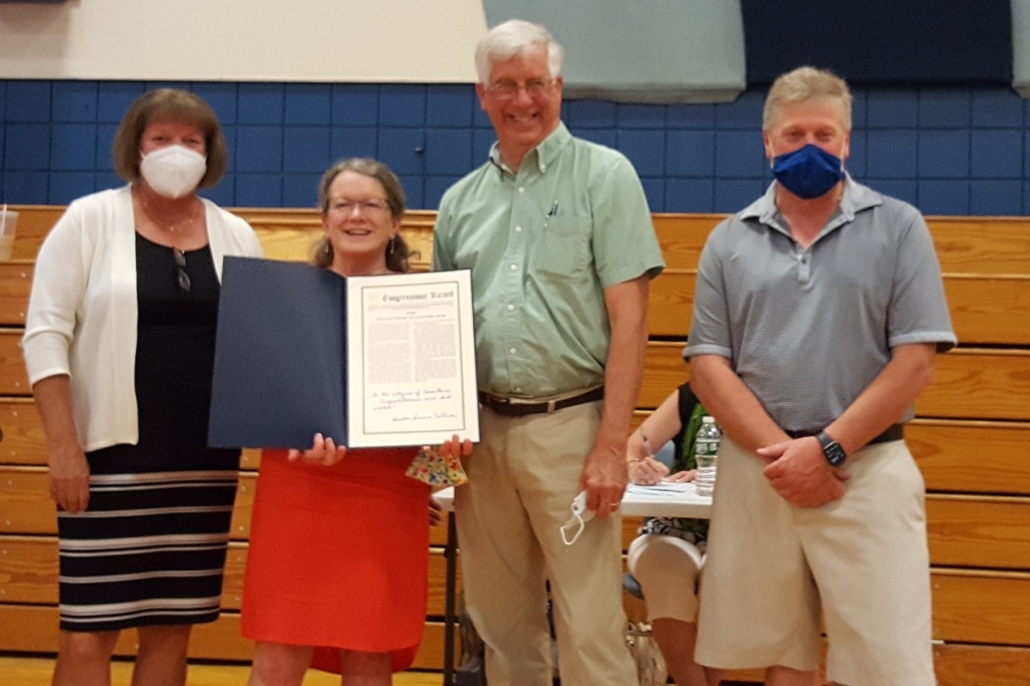CHINA: Town still waiting for treasury department rules on rescue plan
 by Mary Grow
by Mary Grow
At the June 7 China selectmen’s meeting, Town Manager (and Town Treasurer) Becky Hapgood said she and her colleagues statewide are still waiting for the United States Treasury to make rules for using American Rescue Plan Act (ARPA) funds. (See The Town Line, June 10, p. 9, for additional meeting information.)
Hapgood expects China will receive more than $450,000. The main purpose of the federal funds is to make businesses and institutions whole again after the disruption of the pandemic, including funding certain new or expanded projects. Exactly what will be allowed remains to be determined.
The Treasury is accepting comments until mid-July, Hapgood said. The China town office also welcomes ideas; Hapgood was pleased to have suggestions from residents. They include, she said, combating browntail moth caterpillars, air conditioning China school buildings, assisting the program to expand broadband service and supporting the South China library.
Another question unresolved, Hapgood said, is whether ARPA expenditures will require voter approval.
She believes funds will need to be obligated by 2024 and spent by 2026. And, of course, the town office staff will be required to do “a bunch of reporting” to meet federal requirements.
In other business, after discussion with Recreation Committee Chairman Martha Wentworth, selectmen unanimously lifted the $15,000 cap on the recreation reserve fund.
Hapgood said the fund now has a little over $15,000. Wentworth anticipates a budget surplus when the current fiscal year ends June 30, because the pandemic suspended most recreation programs. She will not know the amount until final bills are paid; she estimated as much as $7,000.
Without the selectmen’s decision, the extra money would have gone into the town’s undesignated fund balance, not the committee’s reserve fund. Wentworth said four pending projects are estimated to cost at least $15,000 and maybe considerably more.
The projects are developing a five-year maintenance plan for the town-owned ballfields, starting with dealing with an infestation of grubs; either removing the ballfield lights or, if they are to be kept, replacing decrepit poles and changing bulbs to LED to save energy and costs; creating a China dog park, at a site to be found; and creating an ice-skating rink, probably at the ballfields.
In August, Wentworth said, the recreation committee plans to sponsor outdoor movie nights.
The June 7 agenda called for selectmen to sign contracts for state police dispatching service for the next two fiscal years, paying more than $40,000 for FY 2021-22 and more than $42,000 for FY 2022-23.
Board member Blane Casey asked why the contracts should be signed before voters approved the 2021-22 budget at the June 8 town meeting. Hapgood said refusing to pay is not an option. Selectmen postponed a decision.
The next regular China selectmen’s meeting is scheduled for 6:30 p.m. Monday, June 21. They will hold a short special meeting at 4 p.m., Wednesday, June 30, to approve final bill payments as the fiscal year ends.
The town office will close at noon June 30 for end-of-year work. For the Independence Day holiday, the town office and transfer station will be closed Saturday, July 3, and Monday, July 5 (the transfer station is regularly closed Mondays). The selectmen will meet Tuesday, July 6, instead of the usual Monday.
Assessor proposes reaction to real estate prices
Assessor William Van Tuinen attended the June 7 selectmen’s meeting virtually to propose an appropriate reaction to Maine’s rising real estate prices. Selectmen accepted his advice.
Van Tuinen called the increase in Maine real estate sales and prices “unprecedented.”
“Since 1977 I’ve never seen anything like this,” he said.
State laws require municipalities to keep their real estate valuations close to sales prices. There are different requirements and different base years for different purposes.
If a municipality lets its valuations drop too far below actual prices, the state requires reductions in the homestead exemption granted to full-time residents and in collection of certain taxes.
Van Tuinen proposed adjusting China real estate values upward to match prices based on sales through June 30, 2020, ignoring the 2021 price increases. If 2021 turns out to be “a bubble,” the new values should be all right; if not, he is likely to propose another increase in valuation in a year.
He assured Selectman Wayne Chadwick he would do his best to finish the revaluation within the assessing budget, without additional cost to the town.
On another topic, Van Tuinen said state law allows tax exemptions for most community solar farms, because they produce renewable energy. If a solar array is on leased land, the land value is not exempt; and the state reimburses municipalities 50 percent of the lost revenue.
The solar array on Route 32 North (Vassalboro Road) is exempt as of April 1, 2020, Van Tuinen said, and he expects owners of the newer array off Route 32 South (Windsor Road) will file an application that state authorities will approve.




 by The Town Line staff
by The Town Line staff


